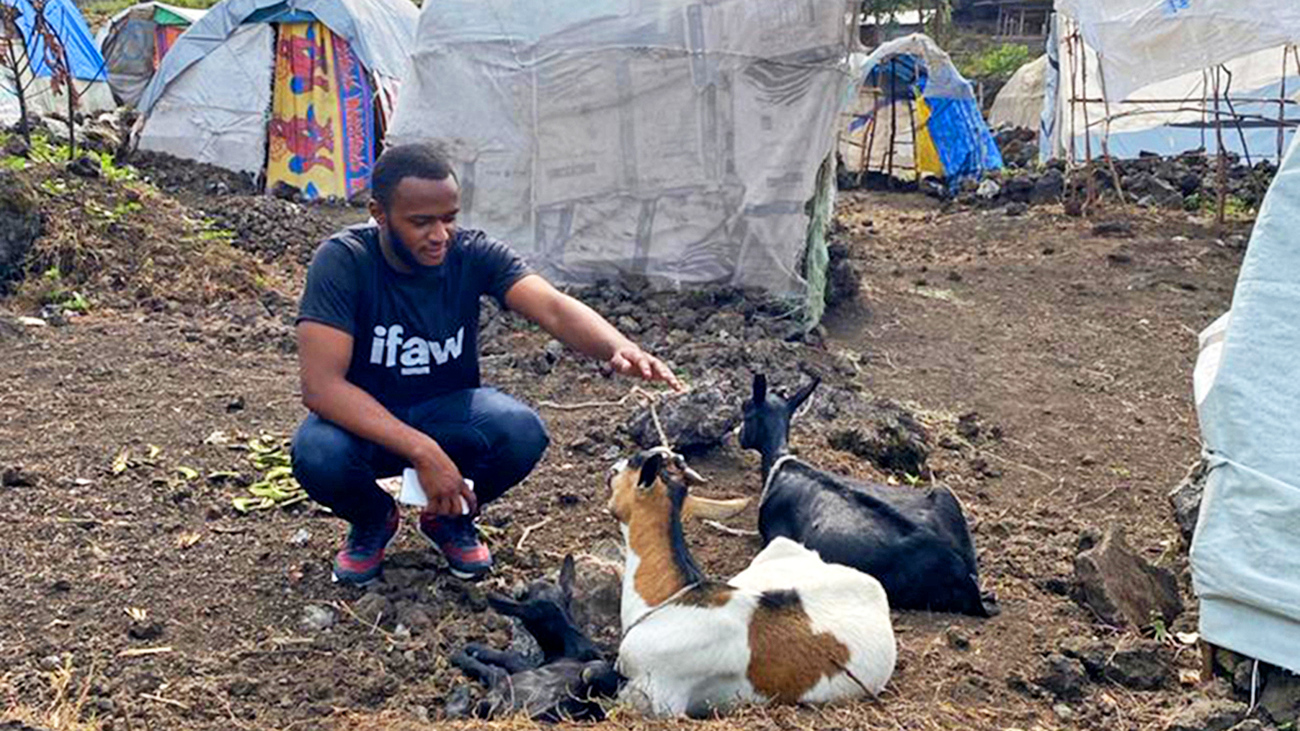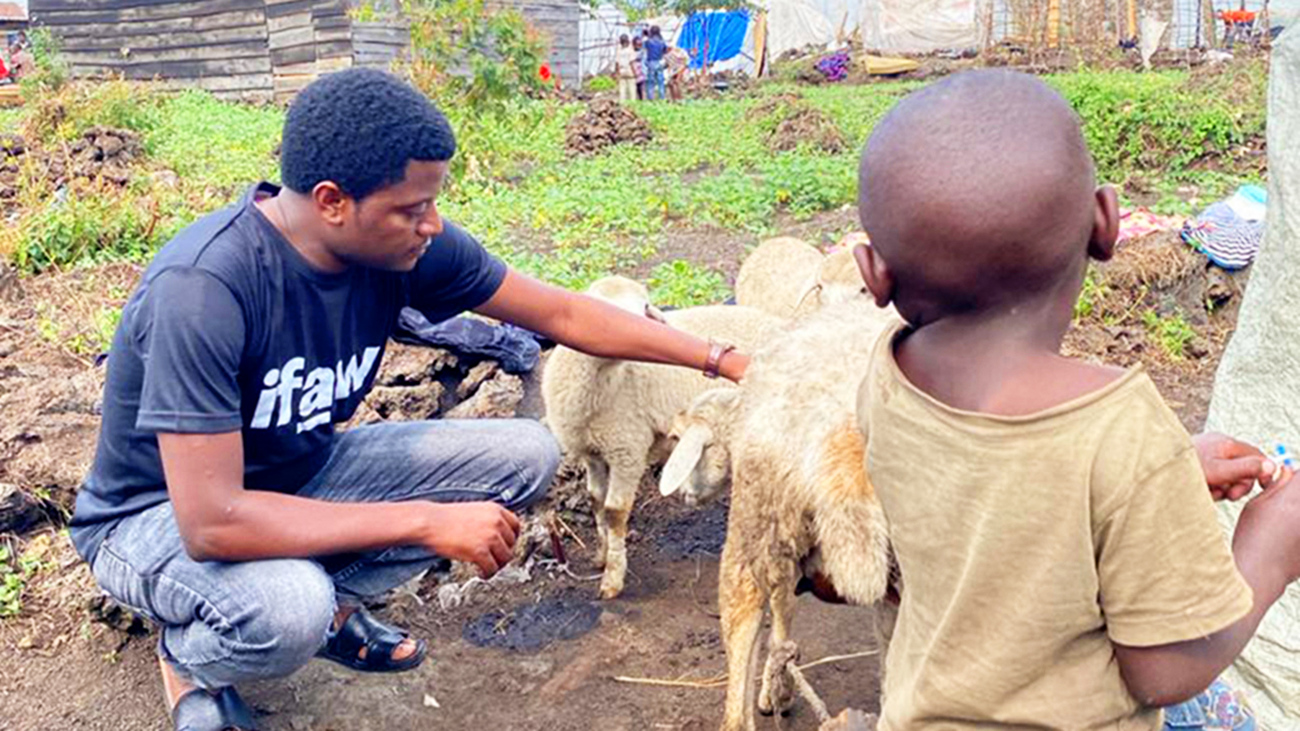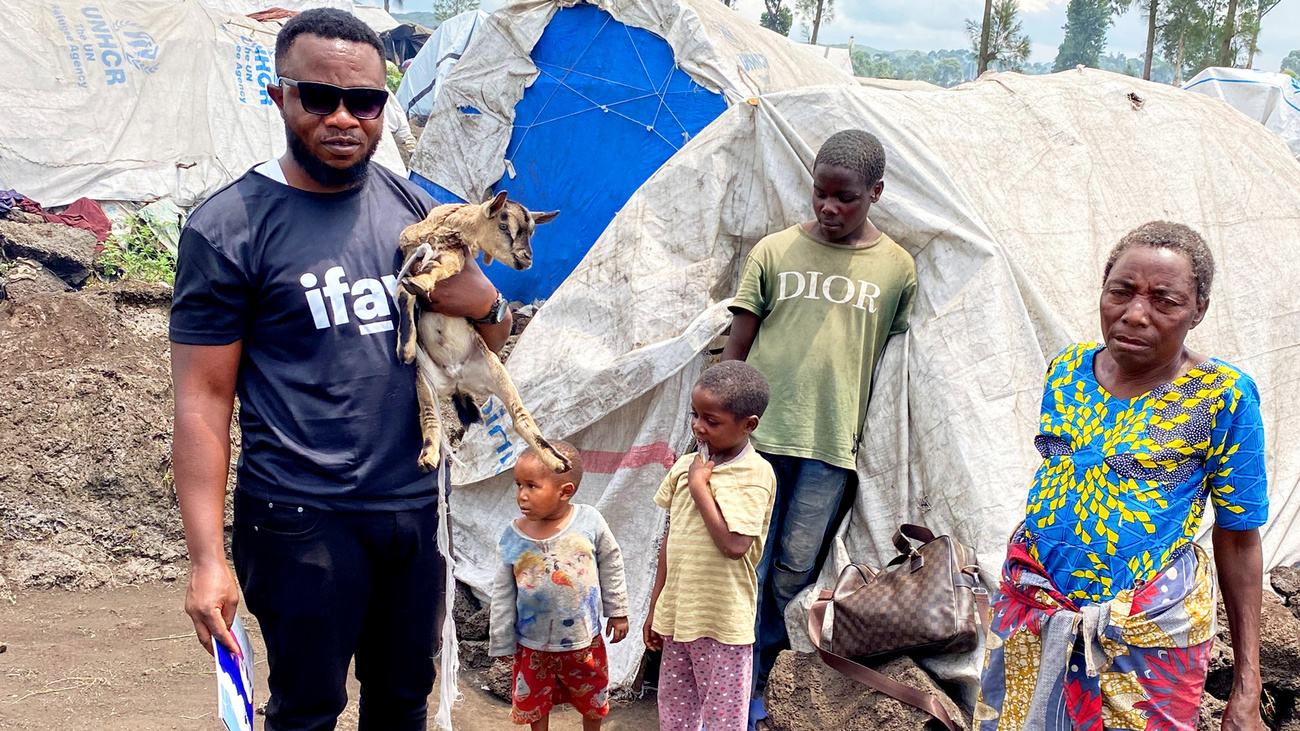Blog
Long’uro: one elephant’s story of immense resilience
Read moreHelping animals amid humanitarian crisis in the DRC

In response to this crisis, several humanitarian camps have been set up within the DRC and in neighboring countries to provide shelter and aid to displaced families. While attention is rightfully focused on meeting the immediate needs of the human population, the welfare of the animals accompanying them—dogs, goats, sheep, cattle, and poultry—cannot be overlooked.
Through collaborative efforts with local organisations Sauvons Nos Animaux (SNA) in the DRC and Animal Welfare and Protection Organization (AWPO) in Uganda, IFAW is supporting the assessment and care of animals in several refugee camps.

SNA assessed two camps for Internally Displaced Persons (IDPs) in late March in the South Kivu Province in eastern DRC. Nealy 2,000 animals were living with their families at these two camps. Conditions for the animals were poor, with some showing signs of illness and parasites, and families struggled to keep them fed. Until now, there have been no services at these camps to provide basic animal welfare.
Ms. Masika Kavira, a young mother who left behind most of her belongings to seek refuge at the Mungunga refugee camp, had her herd of cattle—her only form of livelihood—looted at the start of the war, leaving her family in total devastation. Masika left the conflict with her children, a few goats, and her dog, while her husband stayed back to protect their house and the other animals they left behind.
‘Once I arrived at the camp, I was not allowed to bring my dog for hygiene reasons,’ she says. ‘I had to abandon my faithful companion at the entrance to the camp, which was heartbreaking for me. Now I’m left with my goats, which are suffering and dying for lack of proper care.’

IFAW is extending its assistance to border communities in Uganda, where many displaced individuals seek refuge. Here, the focus is on providing veterinary treatment for animals at refugee reception centers and resettlement areas. By addressing the health needs of these animals, IFAW aims to mitigate the risks of disease outbreaks and alleviate their suffering in already stressful circumstances.
Additionally, we plan to implement advocacy and training programmes to equip local communities with the knowledge and skills they need to manage refugee animals effectively.
Animals play a crucial role in the lives of many people, serving as sources of livelihood and companionship. Neglecting their needs not only compromises their welfare but also undermines the resilience of human communities already facing immense challenges. Through our work to help these animals, we aim to contribute to the overall resilience and stability of communities affected by conflict.
Every problem has a solution, every solution needs support.
The problems we face are urgent, complicated, and resistant to change. Real solutions demand creativity, hard work and involvement from people like you.
Unfortunately, the browser you use is outdated and does not allow you to display the site correctly. Please install any of the modern browsers, for example:
Google Chrome Firefox Safari